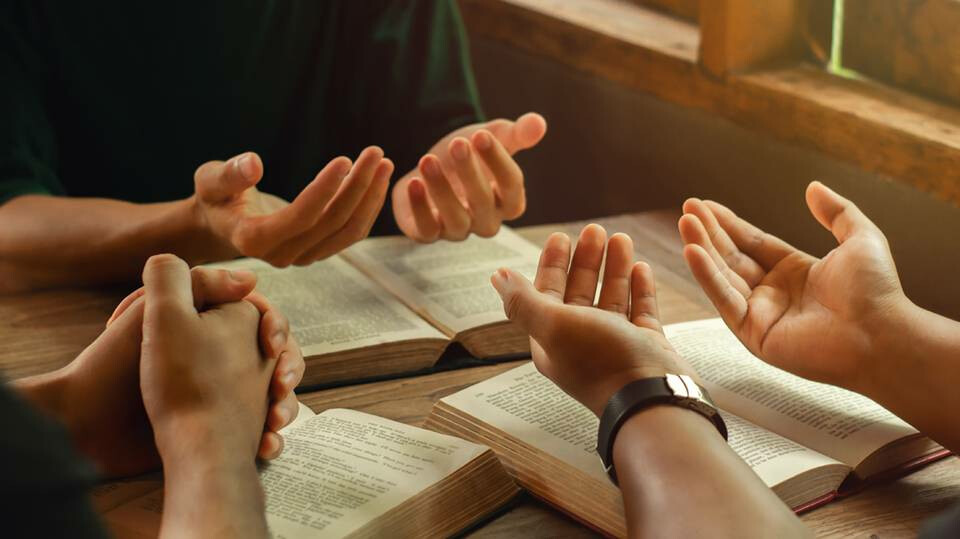
In their recent book “The Upswing,” Robert Putnam, Malkin Research Professor of Public Policy at Harvard’s Kennedy School, and co-author Shaylyn Romney Garrett suggest that there is a correlation in America between polarization and an emphasis on the individual. Conversely, when polarization has been low, there was an emphasis on the community and the common good. Among other places, Putnam and Romney Garrett found evidence of this in the language used in literature. Google Ngram Viewer reveals a 300-400% increase in the use of the words “I,” “my,” and “me” in books published since 1980. One of their conclusions is that combating polarization requires society to move from a focus on “I” to a focus on “we.” They suggested that churches and people of faith played a key part in the depolarization in America at the beginning of the 20th century as they emphasized the values of love, justice and compassion. Tragically, they have often played a role in the repolarization of America over the last 30 years.
What if America’s 213 million Christians reprised this role they once held of being healers and bridge builders, living the gospel Jesus preached when he called his followers to love their neighbors and even their enemies? Might this two-thirds of America’s population lead us out of the hyperpolarization we find ourselves mired in?
The Lord’s Prayer — some call it the Our Father — would be a great place to start. Nearly every Christian in America knows this prayer, as do many of the “spiritual but not religious” who are no longer involved in church. Jesus gave this prayer as a pattern for his disciples. By the late first or early second century, Jesus’ followers were praying this prayer three times a day.
Most often when we pray, we pray I, my or me. But you won’t find an I, my, or me in the Lord’s Prayer. The emphasis throughout is our, us, and we. You also won’t find the word mine, but only thy and thine: Our Father, who art in heaven, hallowed be thy name. Thy kingdom come, thy will be done, on Earth as it is in heaven. Give us this day our daily bread. Forgive us, our trespasses as we forgive those who trespass against us. Lead us, not into temptation, but deliver us from evil. For thine is the kingdom and the power and the glory forever.
There is a Latin phrase that is important in understanding how prayer works: “Ora et labora.” it means “pray and work.” When we pray, we focus our hearts on the things we are asking for, and we recognize that we are not meant simply to pray, but to invite God to use us to be a part of the answer to that prayer. We’re not meant simply to pray for someone in need; we’re meant to do what we can to help, care for or encourage them.
When we pray the Lord’s Prayer, and I would suggest we pray it daily, we are focusing our hearts on the things Jesus told us to pray for: hallowing God’s name, God’s kingdom to come and God’s will to be done, daily bread, forgiveness and leading away from temptation and evil. But as we understand that we pray and work, we begin to see what Jesus was up to. He called us not only to fix our hearts on these things, but to be a part of God’s answer to these prayers. And as we pray these things for our, us and we, we set our hearts on acting for the common good rather than only for our well-being as individuals.
There are 213 million people in America today who claim to be followers of Jesus. What would happen if all of us prayed daily that we might hallow God’s name? If we committed ourselves to doing God’s will? What would it look like if 213 million people prayed for God to use us to ensure that all had their daily bread? Imagine if two-thirds of Americans daily prayed for God’s help in forgiving others, setting aside our resentments and strife. Or how might our country be different if all who follow Jesus prayed daily for God to lead us away from that which inflicts harm on others or reflects what is bad or wrong? If we prayed and lived this prayer every day, there would be no room left for polarization, and I, my and me would have given way to our, us and we.
Reprinted from the Kansas City Star, January 30, 2022. Adam Hamilton is the author of the book “The Lord’s Prayer: The Meaning and Power of the Prayer Jesus Taught“ and senior pastor of the United Methodist Church of the Resurrection in the Kansas City area. You can find this HERE.
